
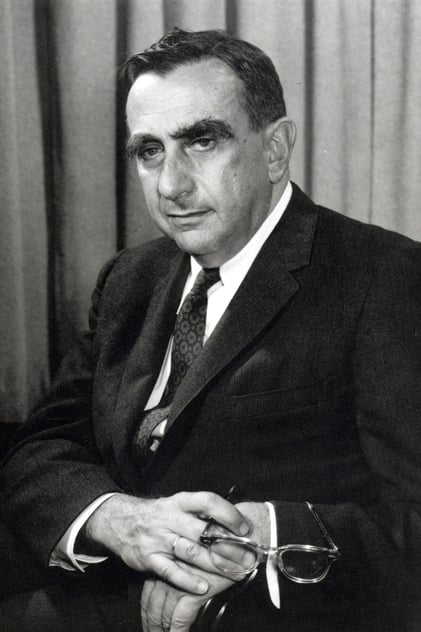
Edward Teller
Born: January 15, 1908
Died: September 9, 2003
in Budapest, Austria-Hungary [now Hungary]
Died: September 9, 2003
in Budapest, Austria-Hungary [now Hungary]
Edward Teller (Hungarian: Teller Ede; January 15, 1908 – September 9, 2003) was a Hungarian-American theoretical physicist who is known colloquially as "the father of the hydrogen bomb" (see the Teller–Ulam design), although he did not care for the title, considering it to be in poor taste.[1] Throughout his life, Teller was known both for his scientific ability and for his difficult interpersonal relations and volatile personality.
Born in Hungary in 1908, Teller emigrated to the United States in the 1930s, one of the many so-called "Martians", a group of prominent Hungarian scientist émigrés. He made numerous contributions to nuclear and molecular physics, spectroscopy (in particular the Jahn–Teller and Renner–Teller effects), and surface physics. His extension of Enrico Fermi's theory of beta decay, in the form of Gamow–Teller transitions, provided an important stepping stone in its application, while the Jahn–Teller effect and the Brunauer–Emmett–Teller (BET) theory have retained their original formulation and are still mainstays in physics and chemistry.[2]
Teller also made contributions to Thomas–Fermi theory, the precursor of density functional theory, a standard modern tool in the quantum mechanical treatment of complex molecules. In 1953, along with Nicholas Metropolis, Arianna Rosenbluth, Marshall Rosenbluth, and his wife Augusta Teller, Teller co-authored a paper that is a standard starting point for the applications of the Monte Carlo method to statistical mechanics and the Markov chain Monte Carlo literature in Bayesian statistics.[3] Teller was an early member of the Manhattan Project, charged with developing the first atomic bomb. He made a serious push to develop the first fusion-based weapons as well, but these were deferred until after World War II. He co-founded the Lawrence Livermore National Laboratory, and was both its director and associate director for many years. After his controversial negative testimony in the Oppenheimer security hearing convened against his former Los Alamos Laboratory superior, J. Robert Oppenheimer, Teller was ostracized by much of the scientific community.
Teller continued to find support from the U.S. government and military research establishment, particularly for his advocacy for nuclear energy development, a strong nuclear arsenal, and a vigorous nuclear testing program. In his later years, he became especially known for his advocacy of controversial technological solutions to both military and civilian problems, including a plan to excavate an artificial harbor in Alaska using thermonuclear explosive in what was called Project Chariot, and Ronald Reagan's Strategic Defense Initiative. Teller was a recipient of numerous awards, including the Enrico Fermi Award and Albert Einstein Award. He died on September 9, 2003, in Stanford, California, at 95.
From Wikipedia, the free encyclopedia
Born in Hungary in 1908, Teller emigrated to the United States in the 1930s, one of the many so-called "Martians", a group of prominent Hungarian scientist émigrés. He made numerous contributions to nuclear and molecular physics, spectroscopy (in particular the Jahn–Teller and Renner–Teller effects), and surface physics. His extension of Enrico Fermi's theory of beta decay, in the form of Gamow–Teller transitions, provided an important stepping stone in its application, while the Jahn–Teller effect and the Brunauer–Emmett–Teller (BET) theory have retained their original formulation and are still mainstays in physics and chemistry.[2]
Teller also made contributions to Thomas–Fermi theory, the precursor of density functional theory, a standard modern tool in the quantum mechanical treatment of complex molecules. In 1953, along with Nicholas Metropolis, Arianna Rosenbluth, Marshall Rosenbluth, and his wife Augusta Teller, Teller co-authored a paper that is a standard starting point for the applications of the Monte Carlo method to statistical mechanics and the Markov chain Monte Carlo literature in Bayesian statistics.[3] Teller was an early member of the Manhattan Project, charged with developing the first atomic bomb. He made a serious push to develop the first fusion-based weapons as well, but these were deferred until after World War II. He co-founded the Lawrence Livermore National Laboratory, and was both its director and associate director for many years. After his controversial negative testimony in the Oppenheimer security hearing convened against his former Los Alamos Laboratory superior, J. Robert Oppenheimer, Teller was ostracized by much of the scientific community.
Teller continued to find support from the U.S. government and military research establishment, particularly for his advocacy for nuclear energy development, a strong nuclear arsenal, and a vigorous nuclear testing program. In his later years, he became especially known for his advocacy of controversial technological solutions to both military and civilian problems, including a plan to excavate an artificial harbor in Alaska using thermonuclear explosive in what was called Project Chariot, and Ronald Reagan's Strategic Defense Initiative. Teller was a recipient of numerous awards, including the Enrico Fermi Award and Albert Einstein Award. He died on September 9, 2003, in Stanford, California, at 95.
From Wikipedia, the free encyclopedia
Movies for Edward Teller...
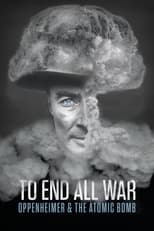
Title: To End All War: Oppenheimer & the Atomic Bomb
Character: Self - Theoretical Physicist (archive footage)
Released: July 9, 2023
Type: Movie
Explore how one man's relentless drive and invention of the atomic bomb changed the nature of war forever, led to the deaths of hundreds of thousands of people and unleashed mass hysteria.


Title: Clockwork Climate
Character: nuclear physicist
Released: November 24, 2015
Type: Movie
The Cold War's wildest dreams of climate control have made a spectacular comeback: from the USA to China, 'geo-engineers' promise to make climate change the way we want. And they have found powerful supporters among lobbyists and entrepreneurs. This film is an investigation into the world-wide boom in geo-engineering. How did a pseudo-science with a controversial past become a planet-wide research subject?

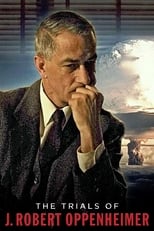
Title: The Trials of J. Robert Oppenheimer
Character: Self (Archive Footage/Photos)
Released: March 24, 2008
Type: Movie
J. Robert Oppenheimer was a national hero, the brilliant scientist who during WWII led the scientific team that created the atomic bomb. But after the bomb brought the war to an end, in spite of his renown and his enormous achievement, America turned on him - humiliated and cast him aside. The question the film asks is, "Why?"

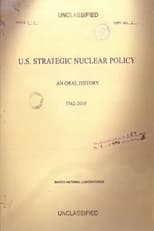
Title: U.S. Strategic Nuclear Policy
Character: Self
Released: January 1, 2005
Type: Movie
U.S. Strategic Nuclear Policy, An Oral History explores the origins of United States strategic nuclear policy and how it evolved. The documentary looks at this topic through the oral history of key participants including Robert McNamara, Edward Teller, James Schlesinger, Andrew Goodpaster, Harold Brown, Richard Garwin and William Kaufmann.

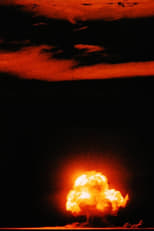
Title: The Moment in Time: The Manhattan Project
Character: Himself
Released: June 5, 2000
Type: Movie
The Moment in Time documents the uncertain days of the beginning of World War II when it was feared the Nazis were developing the atomic bomb. The history of the bomb's development is traced through recollections of those who worked on what was known as "the gadget."


Title: Nuclear Dynamite
Released: January 1, 2000
Type: Movie
The enormous destructive power of nuclear explosions can be used, not just in theory, for peaceful purposes. In the second half of the 1950s, scientists from both nuclear superpowers began experimenting with smaller underground nuclear explosions, which were to be used to move large amounts of soil in the construction of canals, canals, and mining.

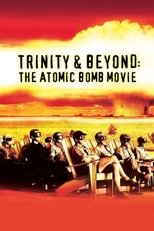
Title: Trinity and Beyond: The Atomic Bomb Movie
Character: Self - Nuclear Physicist (as Dr. Edward Teller)
Released: September 29, 1995
Type: Movie
"Trinity and Beyond" is an unsettling yet visually fascinating documentary presenting the history of nuclear weapons development and testing between 1945-1963. Narrated by William Shatner and featuring an original score performed by the Moscow Symphony Orchestra, this award-winning documentary reveals previously unreleased and classified government footage from several countries.


Title: I Am Become Death: They Made the Bomb
Character: Self
Released: January 1, 1995
Type: Movie
A rare view from within, as several of the Manhattan Project scientists, including Hans Berthe, Robert Serber, Edward Teller, Robert Wilson, and more, speak of their experiences on the path to a terrible shared destiny. As their lives and work at Los Alamos are revealed, they relate stories of contradictions and jealousies, and how each came to terms with the atomic era's most immediate consequence: the destruction of Hiroshima and Nagasaki.

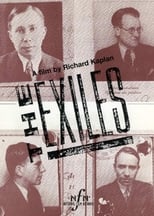
Title: The Exiles
Character: Self
Released: September 24, 1989
Type: Movie
A chronicle of the rescue of oppressed intellectuals and artists from Europe before the outbreak of World War II. It studies the cultural and intellectual impact of this emigre population on American life.

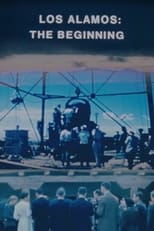
Title: Los Alamos: The Beginning
Character: Self
Released: January 1, 1982
Type: Movie
A documentary composed of historical footage and contemporary interviews from the men and women of Los Alamos, recalling their experiences of the community and the creation of the atomic bomb from the inception of the program in 1943.

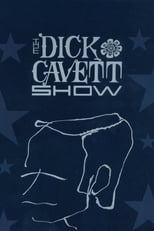
Title: The Dick Cavett Show
Character: Self - Guest
Released: June 6, 1968
Type: TV
The Dick Cavett Show has been the title of several talk shows hosted by Dick Cavett on various television networks.

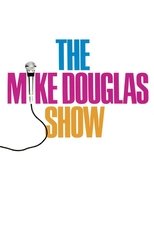
Title: The Mike Douglas Show
Character: Self
Released: December 11, 1961
Type: TV
The Mike Douglas Show is an American daytime television talk show hosted by Mike Douglas that originally aired only in the Cleveland area during much of its first two years on the air. It then went into syndication in 1963 and remained on television until 1982. It was distributed by Westinghouse Broadcasting and for much of its run, originated from studios of two of the company's TV stations in Cleveland and Philadelphia.
